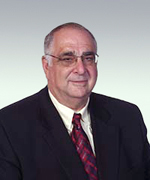
I am a professional journalist who makes his living as a marketing consultant and freelance writer. I am also an independent living resident of a continuing care retirement community, Covenant Living of Northbrook, in Northbrook, IL. Unlike many, I tracked the coronavirus from the beginning and saw it spread from China to Korea and Japan, and eventually to Europe and finally to the United States. As this piece is being published, there are more than 300,000 cases with approximately 7,600 deaths.
Having not lived through World War II, the only remotely similar event was 9/11, but this pandemic and 9/11 had major differences with regard to the long-term economic impact on our country. I give a current events program at my community, and if I were able to give my presentation this month, I’d talk about how we may be heading into the worst days of the crisis.
Enlightened managers of retirement communities like mine realize what makes this disease especially scary for retirement community residents is the vulnerability of residents to the disease. Many of our residents suffer from ailments such as heart disease, high blood pressure, diabetes and other existing conditions that make us so prone to the epidemic.
‘An outstanding job’
Management at my community has done an outstanding job of trying to protect residents. As the disease’s impact has increased exponentially, the restrictions on residents have also increased exponentially. They first restricted people coming into the community, including families of residents. All special programs and assemblies were curtailed. As of last week, a staff member was wearing a face mask and gloves when he delivered a drug prescription.
Starting Friday, March 20, management closed the dining room and all meals are now delivered to resident’s rooms. Residents primarily ordered their meals through email with a special email address. Kitchen staff made menus more basic and appealing to most residents. The most draconian measure was the nearly total shut-down, although residents could leave the community to take a walk, purchase drugs and groceries if he/she had access to a car. When residents return, they take a test for fever. Any resident who stays away from the community overnight is quarantined for 14 days upon return.
Staying in touch
Life is frustrating. Fortunately, cell phones with Facetime and computers with Skype enable one to communicate with loved ones and business associates. Computers and cellphones also enable email correspondence. Residents such as I have a ROKU device or Amazon Firestick plugged into our TVs and have a wide window to all sorts of programming. I join a few friends for dinner in the hallways near our rooms where we eat our boxed dinners together.
I am an atypical retirement community resident. Not only am I younger than most residents (77), I still work. I found myself in the retirement community when I discovered life was impossible for me in my beautiful 100-year-old home (with many stairs, narrow corridors and antiquated bathrooms) in a nearby suburb.
Even though community management closed the library room, there are various places in the community where books are stored on bookshelves. The quality of TV programming is great. Although management ended our bridge games, I have “gin rummy” friend.
While life is difficult and different, it could be a lot worse.
James T. Berger is a principal of Market Strategies, an integrated marketing communications firm. He is also a resident of Covenant Living of Northbrook, in Northbrook, IL, and father of McKnight’s Long-Term Care News Senior Editor Liza Berger.



